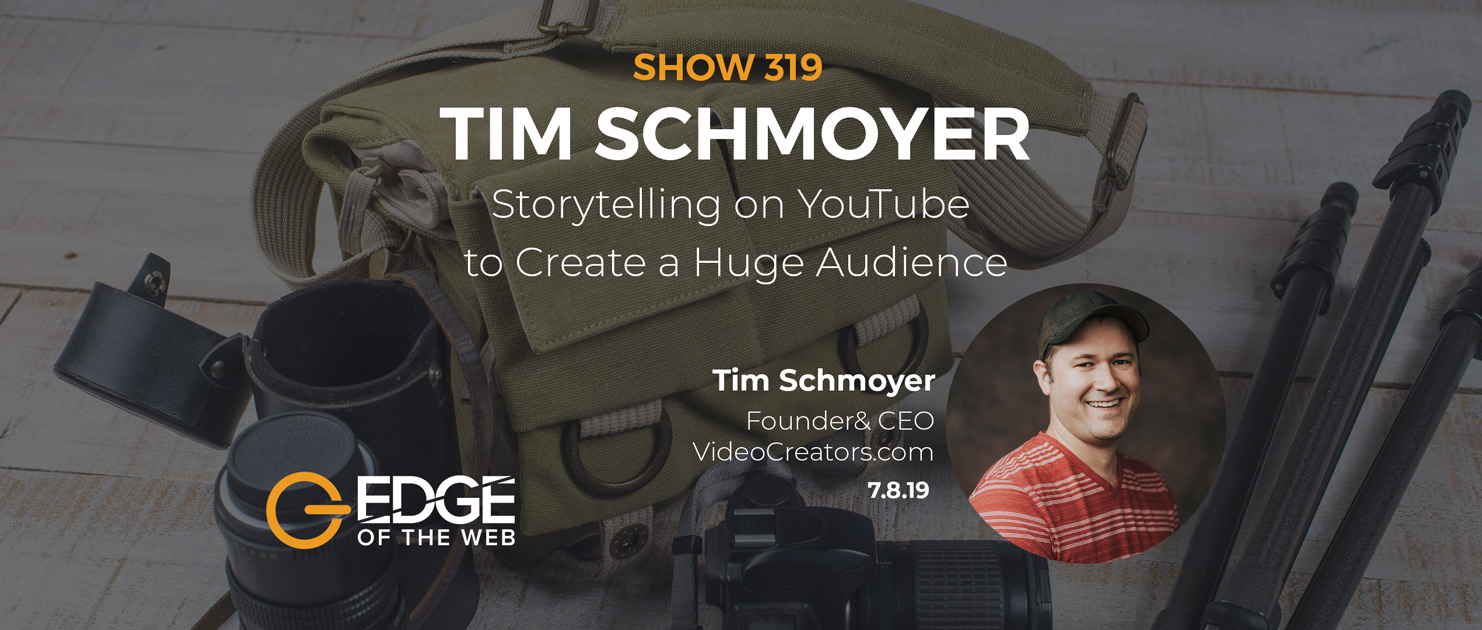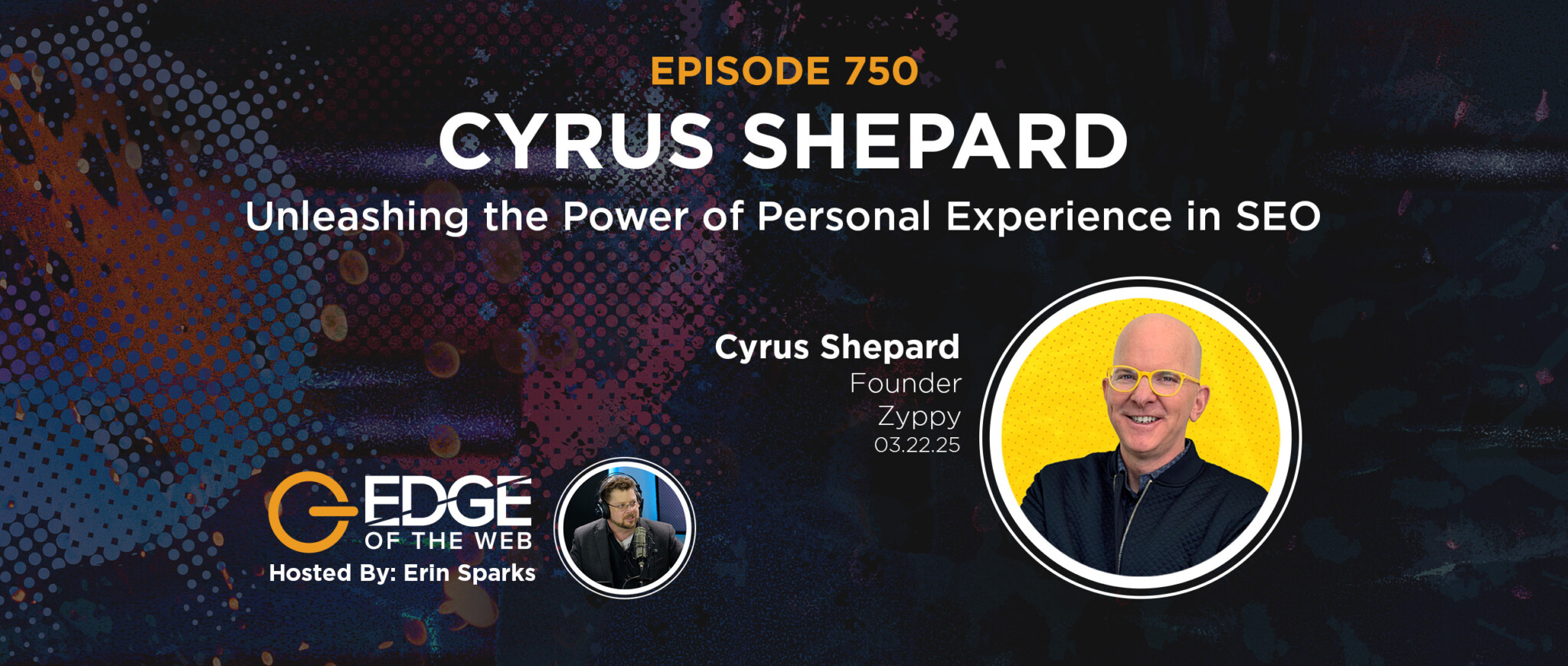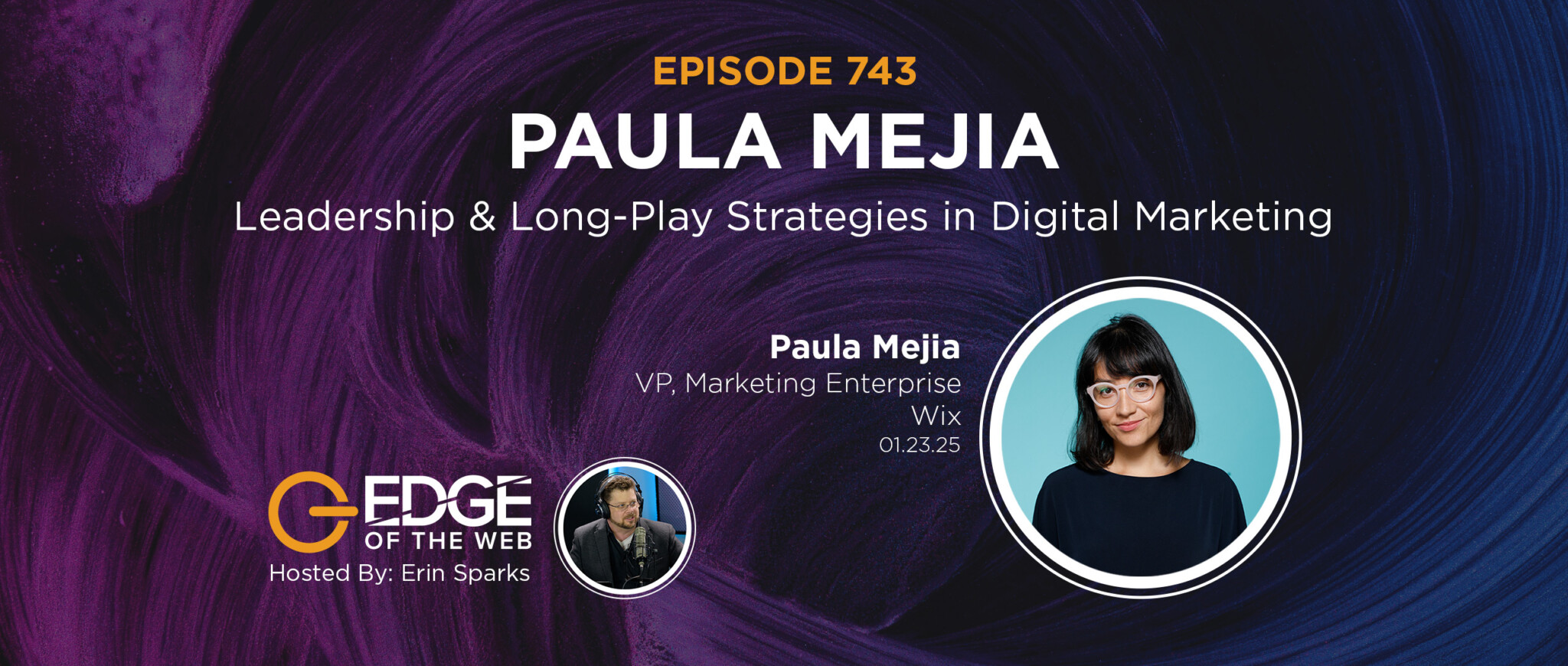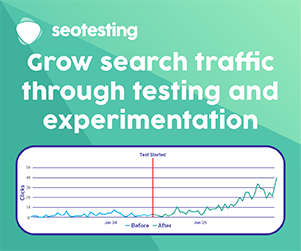When Site Strategics CEO Erin Sparks spoke with special guest Tim Schmoyer, Founder and CEO of Video Creators, for episode 319 of the award-winning EDGE of the Web podcast, they talked about all the reasons why storytelling videos work so well on YouTube, and what’s holding some companies back from doing it right. Here’s what we learned:
00:24:06
Barriers to Storytelling

Some of the barriers that hold companies back from using a good storytelling structure for their videos are obvious. It obviously takes a lot more work to develop and tell a good story than it does to just do the direct how-to kind of content. It’s just a fact, but the good story videos perform so much better than it’s worth the extra time and effort. It’s the difference between getting a return on the investment or not. What happens to a lot of companies do is they think they’re not so sure about this YouTube thing, so they’ll just try it, but if they don’t go all in then their videos won’t perform well and then they’ll back out because it’s not working. But they didn’t really do it right, so of course, it didn’t work.
Tim and his team are also clear with clients about whether or not YouTube should even really be a significant part of their overall branding strategy. For some companies, their time and money would be spent elsewhere. In other cases, the time of the Video Creators team would be better spent on clients eager to take their YouTube strategy to the next level, as opposed to those who want to be convinced why they should even bother with YouTube at all.
If you’re a digital marketing professional on the inside of a company and the higher-ups aren’t on board with having a YouTube strategy, you should point out to them a few case studies or something that show how what you want to do is performing well for other companies. And if you need to change some minds about YouTube, the most effective way to change minds is by telling a good story – not just a presentation of facts. The science of storytelling shows that when you tell someone a story, they relax. They listen. They connect. It works. The way you convince someone to tell better stories is by telling them a great story.
00:30:30
Applying the 7-Question Model to Audiences
The 7-question model for telling a good story has to be applied not to just the content level of each video you create; it must also be applied to your audience. Here’s how the 7 questions compare from content to the audience:
| # |
Content Level |
Audience Level |
| 1 |
Who is the character? |
Who is your audience? |
| 2 |
What does that character want? |
What does your audience want? Paint point |
| 3 |
Why can’t they get what they want? |
Why can’t they get what they want? |
| 4 |
What are the stakes? What will it cost this character if they don’t get what they want? |
What will happen if your audience can’t overcome their barriers/obstacles? |
| 5 |
Who/what helps them succeed? |
How can YOU be the one who helps them succeed? |
| 6 |
How does the character ultimately get what they wanted? |
What will they be able to do with your help that they couldn’t do before? |
| 7 |
How does the character change as a result? |
What does success, transformation, victory look like when they achieve it? How will they be changed with your help? |
When you apply the 7-question model at the audience level, it helps you craft content that meets them exactly where they’re at, meaning they will connect very strongly with it and want more. And then every video they watch from you has that same effect and solves problems for them.
00:34:25
Approaching YouTube with the Right Mindset
Too many companies approach YouTube with the wrong mindset. YouTube’s algorithms aren’t ranking videos based on various SEO things like keywords and so forth. The rank videos based on human signals such as whether people are spending time watching it or not, and do they then watch more.
The other mistake marketers make is that their goal is often to get people to watch a video with the intent of then getting them to go to their website in order to buy something, register for something, and so on. The problem with this is that it effectively ends the viewing session, which Google is going to see as a negative. The approach with YouTube needs to be primarily about sustained engagement. You keep them engaged over a period of time and then at some point they will naturally turn to you for your help. But to think of each video as a direct conversion approach would be a bad idea and only result in disappointment. Think longer-term.
Each piece of your content should have a reasonable goal. Starting out, the goal for a piece of content should not be “to go viral,” or even “get a ton of subscribers.” Those are unrealistic on a per-piece-of-content basis. A more realistic goal is something around discoverability, such as you want this particular video to rank well and be well-suggested. And then another video might be more of an explicit sales video, but if you haven’t built up the trust factor in a whole series of videos before that, you won’t get the best results.
Tim had a client who was doing daily videos during the week, and each one ended with an explicit sales pitch. The client was making a solid $20,000 a month with this approach. Tim’s advice to him was to stop “selling” on every video and only include a sales pitch in one of the videos each week. So instead of five videos each week with a sales pitch, there would be four videos about discoverability, building trust, creating a community and so forth, and only one video with a sales pitch. He figured he would take a big hit by not selling as hard, but what happened is he quickly went from $20K/month to $100K/month!
Tim has a weekly podcast every Tuesday available on iTunes, Sound Cloud, Stitcher, Google Play, Spotify and other podcast sources. There are also new weekly videos every Thursday available on the Video Creators YouTube Channel. And there’s also a free guide available through the Video Creators website that walks you through this whole process of creating effective YouTube content. All the links you need are listed below!
Connect with Tim Schmoyer and Video Creators
Twitter: @timschmoyer (https://twitter.com/timschmoyer)
LinkedIn: https://www.linkedin.com/in/timschmoyer/
YouTube: https://www.youtube.com/videocreators
Facebook: @videocreators (https://www.facebook.com/videocreators)
Podcast: https://videocreators.com/podcast























